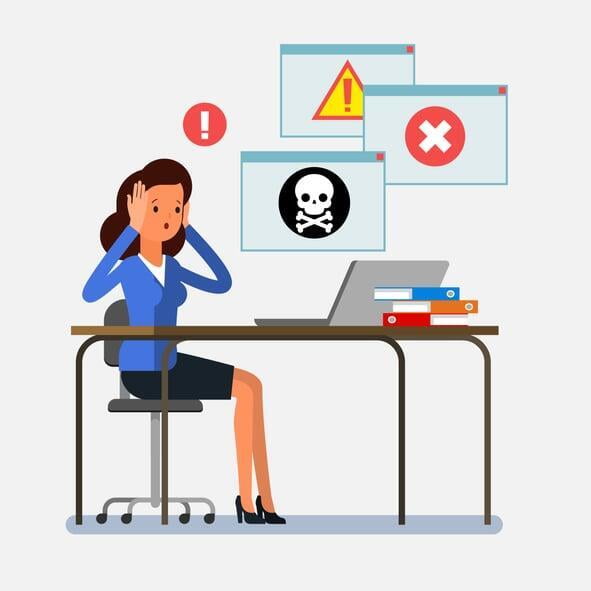4. Protect Every Device
One of the downsides of remote working is that your team members will most likely be using their own devices to log into your network. It’s imperative to clearly outline everyone’s responsibilities when it comes to looking after those devices, from keeping them safe on public transport to ensuring nobody else has access to them.
You’ll need a robust Bring Your Own Device (BYOD) policy in place to ensure everyone knows what’s expected of them – get advice on how to create one
here. It's important to note that under the GDPR, if any device containing personal information is stolen it must be reported to the ICO within 72 hours. It’s also a good idea to install tracking software on your devices so they’re easier to get back in the event of theft or loss.
5. Make Sure Your Software is Always Up to Date
One of the easiest ways for hackers to infiltrate organisations is through outdated software. Every time someone hits the “update later” button it makes your organisation more vulnerable, so make it policy to ensure all software is updated at the same time every week.
6. Back up Regularly
Even if the worst does happen and you lose your data, it will be a whole lot easier to deal with if you’ve got everything backed up in another place. You can store copies of your data in an external hard drive, but most businesses nowadays choose to back up in the Cloud. A good security provider will perform backups on your behalf and regularly monitor activity on the network, which means you won’t have to give it a second thought.
Don't forget to test your backup regularly!
7. Educate and Support Your Staff
This is the number one most important thing you can do when it comes to cyber security. Human error is the biggest cause of data breaches, so by keeping everyone trained and up to date with the latest phishing threats and how to recognise them, you’ll be going a long way towards keeping your customer information safe.
With the right training, employees should all be able to spot a phishing email or dodgy link and know what to do if something doesn’t look right. It’s also important to create a culture in which people feel comfortable to ask if they’re not sure about something, and don’t feel under too much pressure. Of course, an element of pressure is expected in every job, but when people are overloaded, they’re more likely to make mistakes. And as we’ve already seen, sometimes those mistakes have far reaching consequences. Creating a culture of fear won’t work, but providing a supportive, educational environment just might.
We are here to help you and your team stay safe online. To find out more, or to book a cyber security training session, contact us today.



